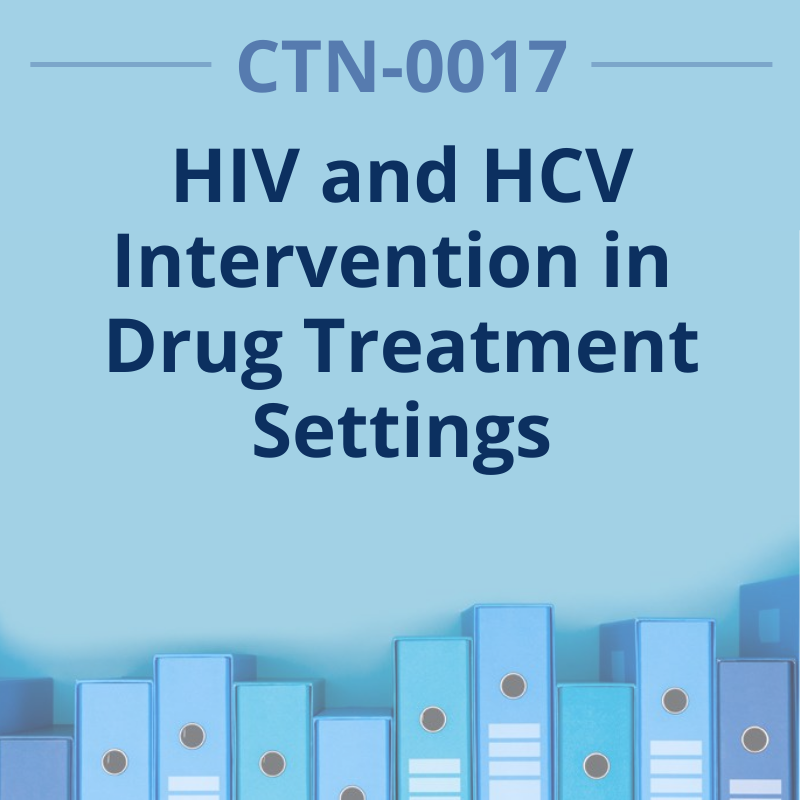CTN-0017: HIV and HCV Intervention in Drug Treatment Settings

Robert Booth, PhD
Lead Investigator
University of Colorado Health Sciences Center
robert.booth@UCHSC.edu
Through June 2000, injection drug users accounted for more than a third of all cases of AIDS reported among persons aged 13 or older to the Centers for Disease Control and Prevention. Sixty percent of HCV transmission is related to injection drug use and as many as 50-95% of injection drug users are infected with HCV. This study tested two strategies to reduce the risk of contracting HIV or HCV by reducing risk behaviors in patients undergoing drug detoxification. The first included pre-test counseling, testing, post-test counseling, and the provision of HIV/HCV results. The second strategy, called therapeutic alliance, provided clients with information to guide them through the process of induction and aimed to facilitate transition to continuing care for drug treatment.
Primary Findings
This study of 632 drug injectors enrolled in eight residential detoxification centers within the National Drug Abuse Treatment Clinical Trials Network tested three interventions to reduce drug and sex risk behaviors. Participants were randomized to: (a) a two-session, HIV/HCV counseling and education (C&E) model added to treatment as usual (TAU), (b) a one-session, therapeutic alliance (TA) intervention conducted by outpatient counselors to facilitate treatment entry plus TAU, or (c) TAU. Significant reductions in drug and sex risk behaviors occurred for all three conditions over a 6-month follow-up period. C&E participants reported significantly greater rates of attending an HIV testing appointment, but this was not associated with better risk reduction outcomes. Reporting treatment participation within 2 months after detoxification and self-efficacy to practice safer injection behavior predicted reductions in injection risk behaviors. Findings indicate that participation in detoxification was followed by significant decreases in drug injection and risk behaviors for up to 6-months regardless of the treatment arm, as long as they were enrolled in detoxification programs; interventions added to standard treatment offered no improvement in risk behavior outcomes.

Primary Outcomes Article: Booth RE, Campbell BK, Milkulich-Gilbertson SK, et al. Reducing HIV-Related Risk Behaviors Among Injection Drug Users in Residential Detoxification. AIDS and Behavior 2010;10(1):3-8. [get article]
Related Resources
- CTN-0017 Study Protocol
- Publications in the Library about CTN-0017
- Study data from NIDA Data Share
- Study Manual: Royer M, et al. HIV and HCV Counseling and Education (C&E) Intervention Training Manual, v. 3.0. Revised for the CTN in October 200r from: Coyle S. NIDA Counseling and Education Intervention Model. Bethesda, MD: NIDA, 1993
- Study Manual: Campbell BK. Developing the Therapeutic Alliance as a Bridge to Treatment: Training Manual for the Therapeutic Alliance Intervention. Unpublished manuscript, 2008
- ClinicalTrials.gov (NCT00102349)
- NIDA protocol page
Node Involvement
Lead Node(s):
All Participating Nodes: